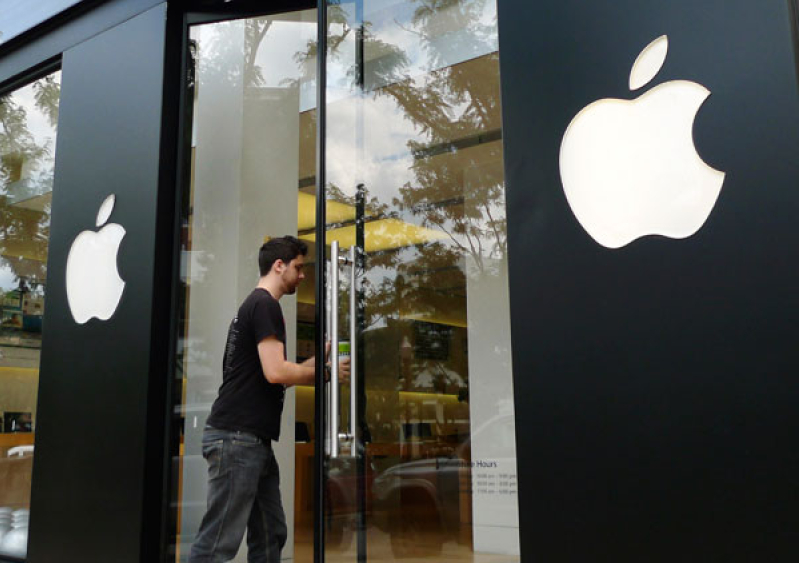
WASHINGTON – The National Religious Broadcasters (NRB) group sounded the alarm Thursday about new media outlets such as Facebook, Google and Apple, which they say have written policies that violate the fundamental rules of free expression, particularly concerning religious free speech.
The NRB released a report at the National Press Club Thursday analyzing the various content policies of social networking websites. What they found was disturbing: new media platforms Facebook, Apple, Comcast, AT&T and Google have adopted policies to censor lawful viewpoints expressing Christian views or controversial ideas on “hot button issues.” Some platforms, such as Apple’s iTunes App Store and Google’s search engine, have already started to use those policies to remove orthodox Christian viewpoints considered “offensive” or too controversial.
Former Federal Communications Commission Commissioner Harold Furchtgott-Roth said, “The irony is the companies listed in this report are some of the most open companies in the world.”
In a January 2010 interview with TechCrunch founder Michael Arrington, Facebook Founder Mark Zuckerberg praised social networking for opening people up to share “more information and different kinds, but more openly and with more people.”
However, Zuckerberg’s social network has removed content deemed “anti-gay,” according to the NRB report. It is unclear whether that censored material contained any religious expression. However, the NRB report warns, “The position of Facebook on the issue of homosexuality and its collaboration with gay right group the Gay & Lesbian Alliance Against Discrimination (GLAAD), coupled with its troublesome written policies, are all strong indicators that its social networking platform poses a high index of risk for anti-Christian discrimination.”
The Associated Press caught Comcast blocking or at least delaying peer-to-peer file sharing of the King James Bible.
Google has also committed a number of free speech violations, the NRB report alleges. The world’s most powerful search engine initially prohibited the English Christian Institute from purchasing space for an advertisement about abortion. It also allegedly blocked a Massachusetts pro-family website because of its conservative Christian content. Google also has also excluded churches and other faith groups from free or discounted use of its web tool Google for nonprofits.
Colby May, senior counsel and director for the American Center for Law and Justice, said of new media’s apparent split personality, “Something else is in play.” He and others attending a panel discussion of the report suggested that social networking platforms are under a tremendous amount of pressure from various special interest groups.
For example, Google removed pages of a Norwegian anti-Church of Scientology site after it was pressured to do so by Church of Scientology lawyers.
And when Facebook, citing its outlined responsibility policies, abruptly yanked a fairly innocuous photo of two fully clothed male actors kissing from the blog post of gay rights activist Richard Metzger, it sparked criticism in the gay community, leading Facebook to repost the photo.
Facebook issued a formal apology and reposted the picture. The report contrasts this incident with several others where Facebook “has permanently and unapologetically removed sexual content.”
The grossest act of anti-Christian censorship, according to the report, is Apple’s removal of the Exodus International and Manhattan Declaration apps.
Gay rights protesters demonized Exodus’ app as the “gay cure app,” although the app primarily advertised the date, times and locations of its upcoming events. They rallied more than 107,000 sign petitions asking Apple to remove the app from the iTunes store. Gay activists also successfully petitioned the removal of the Manhattan Declaration.
May lamented Apple’s skewed judgment, saying it rejected an app for a document that upholds the sanctity of life and marriage as “offensive,” but maintains an app for the violent videogame Grand Theft Auto.
The panelists all expressed the fear that selective censorship may silence not just Christianity, but all religions.
May stated that the religious community must demand that companies such as Google and Facebook open their media platforms to more kinds of speech. “When we say ‘open,’ we mean open ... don’t give the heckler veto,” he urged.
Roth urged the religious community to educate the public about the importance of free speech. He said those in academia – millennials such as Zuckerman and the early makers of Google who launched their companies while attending college – may not be aware of why censorship, however small, is problematic.
NRB Senior Vice President and General Counsel Craig Parshall told The Christian Post it plans to send the report to the offending companies along with an invitation for dialogue and discussion. Parshall and others on the Thursday panel made clear their preference for change through dialogue rather than resorting to legislative or regulatory means. However, if the companies do not respond, Parshall says the NRB reserves the right to begin talks with the FCC.







